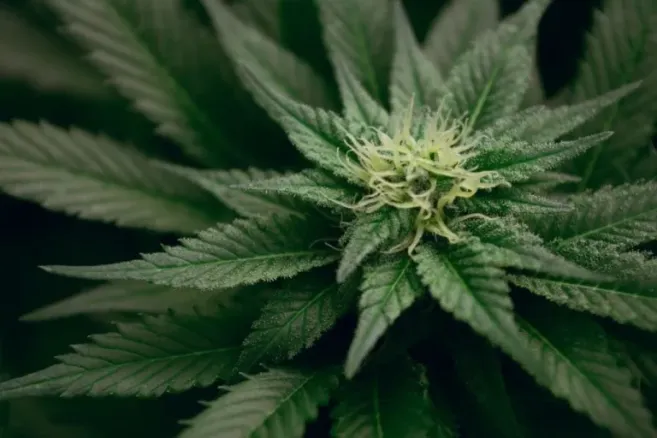Table of Contents
ToggleCan Cannabis Relieve Arthritis Pain?
It’s true … there’s a real lack of human clinical research surrounding marijuana for arthritis. But arthritis patients haven’t necessarily waited for permission from science to treat their often debilitating symptoms with cannabis. Why is that?
Several reasons point to the growing population of medical marijuana users that are outpacing science’s stamp of approval. More awareness of cannabis’s therapeutic effects, although greatly anecdotal, is certainly one reason. Also, many states list arthritis as a qualification for a medical marijuana card. People who live with arthritis often suffer from tremendous pain, and prescribed medications like opioids and NSAIDs have terrible side effects. There’s also the fact that cannabis has a well-known safety profile—there is no known instance of death from a marijuana overdose.
But perhaps the greatest reason people turn to cannabis is because it’s been used medicinally among humans for centuries. In fact, one of the earliest accounts of cannabis medical use comes from an ancient Chinese text (ca. 2000 BC), which notes that cannabis “undoes rheumatism”.
When people can describe a great deal of their day as “stiff, tender, and painful”, it’s unlikely they’re going to shy away from something that has eased the pain and suffering of countless humans over many centuries before them.
That’s not to say that human clinical studies aren’t needed. Because almost as much as arthritis patients know what they know about relief with medical marijuana use, they seem to want guidance too.
Cannabis Studies Show Promising Evidence …
There have been some very encouraging animal studies that suggest the benefits of cannabis in treating symptoms of arthritis. But authorities blame the continuing federal ban on CBD and marijuana on a lack of human studies. Even though there have been a few small studies in humans, researchers haven’t been able to nail down cannabis’s effect on arthritis. However, these studies have shown that medical marijuana could help people with rheumatic diseases, like rheumatoid arthritis and osteoarthritis, by curbing morning pain, improving sleep, and lowering inflammation in joints.
In a 2019 interview with Forbes, Dr. Benjamin Caplan, a physician and cannabis specialist who has helped thousands of patients over 65 treat their arthritis with cannabis, said, “We don’t quite understand all the details of how it works, but we do know that cannabis is a powerful anti-inflammatory agent, and that it operates in a different way than other anti-inflammatory drugs.”
Caplan went on to talk about the various cannabis options available at reputable dispensaries, how they can be tailored to the patient, and how cannabis does not have the harmful side effects of many arthritis medications. “These traditional drug treatments can cause severe side-effects, many of which we do not see with cannabis.”
But while studies are still coming online with a rigorous body of evidence, two recent surveys conducted by reputable arthritis organizations give a picture of how arthritis patients are already using medical marijuana, and how many experts believe the time to offer guidance—however, limited it maybe—is already upon us, clinical study evidence or not.
Surveys Reveal What Patients Already Know About Marijuana for Arthritis
In July 2019, the Arthritis Foundation conducted a national survey, which found that approximately 80% of arthritis sufferers have and still use CBD or cannabis and that cannabinoids will continue to be sought, more and more, as a treatment for patients to manage their arthritis pain and inflammation.
From this knowledge, this organization—that represents the voice and needs of the 54 million people with arthritis—determined that waiting for the research was not the best way to serve arthritis patients.
“Listening to people with arthritis—using data (surveys and Live Yes! INSIGHTS), patient listening sessions and testimonies—drives our work, from science to programming to setting our advocacy agenda,” said the Arthritis Foundation’s senior vice president of consumer health and impact, Cindy McDaniel.
The survey results prompted the organization to create CBD guidelines and to send a public letter to the FDA recommending they focus their efforts on creating standardized quality and safety measures with regard to CBD products.
Another arthritis patient support group, CreakyJoints, decided that because marijuana use was common among arthritis patients, they would conduct a survey to see what the arthritis community perceived about medical marijuana.
Out of 1,059 arthritis patients, 57% reported having used marijuana for medical purposes. And 97% of those who tried it said it improved their symptoms.
With data like this, it seems silly not to issue some form of at least temporary guidelines for a drug that the patients themselves report as beneficial and that more and more experts are admitting does not have nearly the side effects as conventional arthritis meds.
But a lack of both understanding and gold-standard research often creates a disconnect between an arthritis patient and their health care provider.
The Problem of Doctor Disconnect
One thing the CreakyJoints survey discovered was that only two-thirds of patients using cannabis forms reported sharing that information with their doctor. Unfortunately, doctors can’t always discuss what patients want to know about medical marijuana. In some cases, health care providers aren’t willing. This creates a problem because a patient’s physician should be aware of their medical marijuana use in case it could interact with other drugs or just to be able to know the reason for the effects.
Patients want relief, but they also need guidance. Patients suffering shouldn’t have to wait for the system to bridge the gap.
Forms of Cannabis for Arthritis
Some doctors like Caplan are willing to navigate the process of figuring out which cannabis form and dose works best for their patients.
“I have patients with mild joint pain that can be satisfactorily addressed with topical cannabis treatment. Others are nearly incapacitated, taking multiple medications for incomplete relief, and welcome any additional option that will help them cope with the pain and anxiety associated with their condition, and improve their quality of life,” Caplan explained.
That seems to sum up the approach: Find what works. Here are some ways that people with arthritis are using cannabis.
1. MMJ Topicals for Arthritis
Topicals are cannabis-infused creams, ointments, salves, lotions, etc. They won’t make you high, and you can get immediate pain relief in a targeted area (joints, lower back) for a couple of hours. As Dr. Caplan pointed out, these often work best for people with mild pain. The good news is that because the THC does not enter your bloodstream, so you can apply as needed.
2. Pills
This oral form makes dosing consistent, and the pain-relieving effect lasts longer—up to eight hours. The downside of pills and capsules is that it can take more than an hour for effects to come on and they rely on digestion, so how well they absorb depends on many factors, like your metabolism, your gut health and what you have eaten.
3. Marijuana Edibles for Arthritis
This form is also long-lasting (up to eight hours) and is, therefore, good for constant and severe pain. Edibles are also often created like candy or snacks, so they’re pretty easy to administer. However, effects can be inconsistent, making them hard to dose. Also, they come along with calories.
4. Transdermal Patches
These are adhesive patches that contain cannabinoids. Cannabis is absorbed through the skin and into the bloodstream, affecting the entire body. Transdermals deliver slow-release, long-lasting, pain-relieving cannabis into the bloodstream without the need to eat, swallow, or inhale it.
5. Vaping
Vaping is a quick way to get medical marijuana into your system that absorbs more efficiently than oral forms. It’s also odorless, making it a discreet option as well. Also, it’s cleaner than smoking, with little to no chemicals. Herb vaporizers are recommended over oil vaporizers, as you can control the temperature more easily.
6. Tinctures
These are liquids (usually oils) infused with cannabis. Tinctures, which are usually administered with a dropper, making it fairly easy to experiment and determine an ideal dosage for your individual symptoms. While the effects are not immediate, pain relief lasts longer than inhalation.
7. Smoking
Smoking is less expensive than other forms and has immediate effects. However, it is considered the least healthy method because the smoke has toxins and irritates the respiratory tract. Women with rheumatoid arthritis already face an increased risk of progressive lung diseases.
Elevate Holistics Is Here for You
Arthritis patients who want to try medical marijuana can feel alone and uncertain about taking the first step. At Elevate Holistics, we’re here to help you through the cannabis application process and can pair you in no time, from the comfort of your home, with a compassionate doctor for your evaluation.
It takes less than 30 minutes and you don’t even have to leave your house. Schedule your appointment now.



